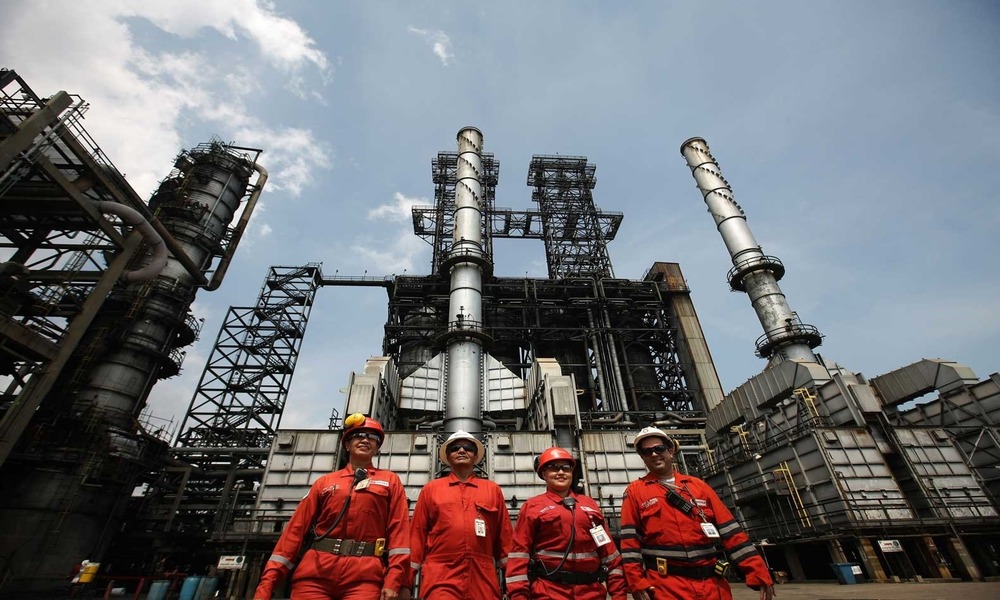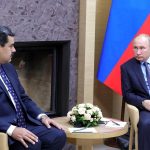RUSSIA MONITOR
Date: 29 January 2019
Russian Turmoil over U.S. Sanctions against Maduro’s Regime
U.S. restrictions against Venezuela’s state-run oil company PDVSA are the worst-case scenario for Maduro’s regime meaning at the same time no financial aid to be granted for the national authorities and a considerable blow to Russian interests in Venezuela. PDVSA and Russia’s state-run oil giant Rosneft participate in a number of joint mining projects; in addition, the Venezuelan company owes Sechin’s firm a total amount of 3 billion dollars. This is to indicate that Russia will not gain any shares in Citgo, PDVSA’s U.S. refining subsidiary. Not surprisingly, Russia’s top politicians took a stance on the issue.

On January 28, the Trump administration imposed sanctions against PDVSA, Venezuela’s state-owned oil company and the country’s largest firm and primary source of its income. The U.S. restrictive measures may result in blocking PDVSA’s assets, worth a total of 7 billion dollars. This decision is targeted against Citgo, PDVSA’s U.S.-based refining subsidiary. As announced by the U.S. administration, the firm will be still able to operate in Venezuela though funds will be sent to PDVSA’s blocked accounts, in fact controlled by the United States. Undoubtedly, Washington is currently pursuing a new strategy of redirecting petrodollars to the authorities in Caracas represented by Venezuelan opposition leader and interim president Juan Guaido. Immediately after the sanctions were announced, the President of the National Assembly of Venezuela said congress will name new boards of directors for PDVSA and Citgo. Given cutting the regime off a valuable source of money, both the United States and its allies in Venezuela are in hope for making the Venezuelan army no longer back Nicolas Maduro, which was part of the Trump administration’s appeal to Venezuelan armed forces.
An attempt to take over PDVSA resulted in Moscow’s anger, which, however, was not due to the weakening popularity of Maduro’s regime, given that as much as one-third of Venezuela’s oil output is imported to the United States. The recent U.S. decision hits Russia’s interests on Venezuelan soil. PDVSA owes Rosneft a total of 3.1 billion dollars, an amount disclosed as an advance payment for crude oil supplies that are still yet to come. Rosneft received the minority stake in a number of mining ventures in Venezuela as well as it managed to secure 49.9 percent of shares in Citgo as collateral for loan financing. The situation seems to be at risk, which made Russian top officials react only a few hours after the U.S. restrictions were officially announced. Russian Foreign Minister Sergey Lavrov said that U.S. sanctions against PDVSA are illegal, by the means of which the United States intends to confiscate Venezuela’s state assets. “Russia will take all necessary steps to support the administration of President Nicolas Maduro,” Lavrov added. The Kremlin spokesman Dmitry Peskov said that U.S. sanctions amount to an attempt of blatant and illegal interference in Venezuela’s domestic affairs. He declared that Russian authorities are analyzing the possible consequences of these restrictive measures, assuring that Moscow is ready to use all available mechanisms to protect its own interests on Venezuelan soil.
All texts published by the Warsaw Institute Foundation may be disseminated on the condition that their origin is credited. Images may not be used without permission.














